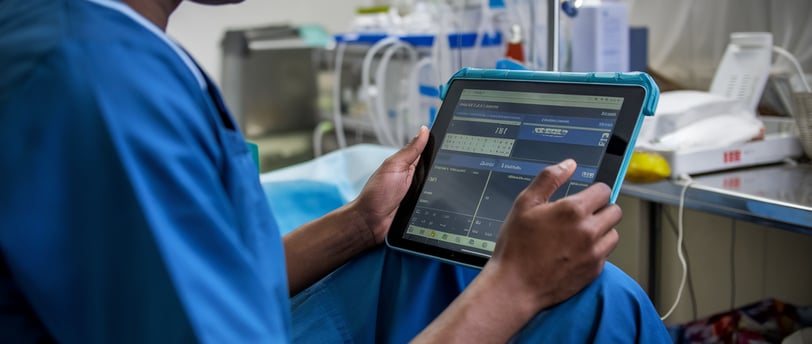India Embraces Electronic Health Records Online for the Future of Medicine
TECHNOLOGY
Reshma Hasdah
3 min read


A technological whirlwind awaits India in the fast-evolving healthcare industry. A nation that is the second most populous in the world and has a wide array of complexities in the needs and demands of its people is poised to bring electronic health records (EHR) on the web that can take medical treatment and care way higher than it is at the present level. How will this transformation happen digitally, and what could be the ramifications of this for the future of medicine in India? Let's explore further.
The Digital Health Revolution in India
Electronic Health Records (EHR) store patients’ medical information on data, making things easier, quicker, and more secure. This shift in India is not just a technological and digital revolution but a structural development reflecting the changing face of modern healthcare.
The Current Landscape
Such inefficiencies have long been a feature of India's healthcare system. Most patient records are still in paper format, which can lead to difficulties in data retrieval, human error, and a lack of continuity of care. EHRs were introduced to address these problems and ensure data uniformity across varying healthcare facilities.
Accessibility: Digital records can be accessed quickly, which is essential in emergencies where every second is precious.
Efficiency: Uniform data translates into quicker and more efficient treatments.
Security: Paper records can be lost, damaged, and misplaced, but EHRs offer a more secure, encrypted storage alternative.
Challenges to Implementation
The deployment of EHR systems in such a large, heterogeneous nation as India has not escaped its challenges.
1)Infrastructure and Technology
While urban territories may be somewhat technically ready for integrating EHRs, rural areas are more often behind the curve.
Internet Access: Many rural locations still lack steady internet service, which is necessary for online EHR platforms.
Technical Training: Ensuring healthcare workers are comfortable with new systems is another major hurdle.
2)Privacy Concerns
It is highly concerned about data privacy and security. Frameworks like India's Personal Data Protection Bill are changing the conversation around medical data.
Such systems can dramatically improve the quality of care for patients.
Patient Monitoring: With comprehensive patient history available to medical practitioners, continuous health monitoring can be done more efficiently.
Informed Decision-Making: Accurate historical data enables practitioners to make informed decisions that ultimately improve health outcomes.
Research and Analytics-In the case of digital records, extensive data can be analyzed to identify health trends and improve treatment protocols.
Epidemiological Studies: Understanding the disease patterns can aid in designing better public health measures.
Clinical Research: EHRs can expedite clinical trials by making participant recruitment and tracking easier.
EHR - Government Initiatives aiding EHR in India
The Indian government has introduced several initiatives to promote the adoption of EHR; some of those are:
Ayushman Bharat Digital Mission(ABDM): A pan-India program to establish a digital health ecosystem for easy access to patient records.
National Digital Health Blueprint (NDHB): The framework meant to streamline the adoption of EHRNS among different stakeholder healthcare institutions.
EHR Standards 2016: The Ministry of Health and Family Welfare has announced guidelines for ensuring uniformity and interoperability of electronic health records in India.
Guide to Successful Implementation
Strategic approach that could facilitate a successful integration of EHRs in India:
Government Initiatives
The Indian Government has launched numerous initiatives on digital health. One such initiative, the National Digital Health Mission (NDHM), is creating a digital health ecosystem.
Public-Private Partnerships
By leveraging their technological expertise and investments, the government and private sector can work together to promote the widespread use of EHR systems.
Education and Training
Comprehensive training programs are necessary to ensure that healthcare providers are comfortable and proficient with the digital systems.
Conclusion
The transition to electronic health records represents a significant milestone in India's journey toward digitally empowered healthcare. With solution-oriented thinking and cooperative relationships among stakeholders, challenges can be addressed to cultivate a strong, efficient and equitable health system. A health record that had been nothing more than a piece of paper is now a doorway to better-connected, more comprehensive care.
This is a pivotal moment for transformation, and there is a tremendous opportunity to enhance health outcomes nationwide. Regarding healthcare, EHR technology can help us take that leap into a healthier tomorrow.